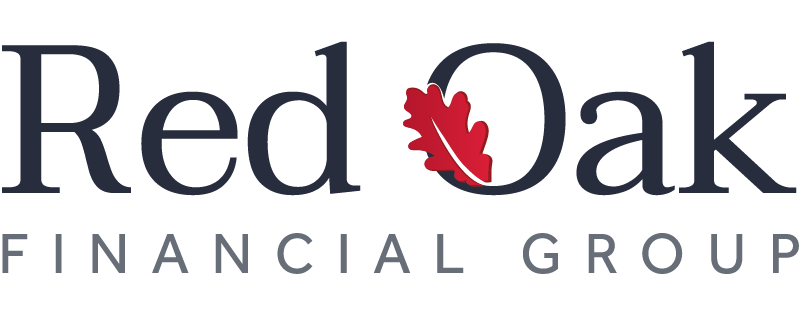
Wealth Tip Wednesday
Remember, the account holds the investment- it is not the investment!
Remember, the account holds the investment- it is not the investment!
Many times people will conflate the type of account with the underlying investment. It is key to remember that an account is simply the container that you put investments (i.e. stocks and bonds) inside of.
What is an Irrevocable Life Insurance Trust (ILIT)?
What is an Irrevocable Life Insurance Trust (ILIT)?
An Irrevocable Life Insurance Trust (ILIT) is a legal entity created to own and control a life insurance policy for the benefit of designated beneficiaries.
5 Reasons to Have and Not Have a Revocable (Living) Trust?
5 Reasons to Have and Not Have a Revocable (Living) Trust?
What types of investments are known as "alternative investments"?
What types of investments are known as "alternative investments"?
The term "alternative investments" encompasses a diverse range of assets that fall outside traditional investment categories like stocks, bonds, and cash. Here are the primary types of assets considered alternative investments:
What is an ILIT Trust and how can it help with estate planning?
What is an ILIT Trust and how can it help with estate planning?
An Irrevocable Life Insurance Trust (ILIT) can offer several significant benefits for individuals and families seeking to protect their assets and provide for their loved ones.
Pros and Cons of Saving for College via 529 / Roth IRA / Brokerage Accounts
Are you planning on saving for your child's education? Here are the pros and cons of using 3 different types of accounts.
Some great Excel Shortcuts to know!
If you are looking to speed up your Microsoft Excel operations for both work and personal use, here are some helpful keyboard shortcuts to get you quicker in excel!
The difference between the geometric and arithmetic return...
Remember Warren Buffet's 2 rules for investing: Rule #1 is Don't lose money and Rule #2 is Don't forget the first rule. Why is this so important? Because as you lose money, the return you require to get back to "even" gets larger and larger.
The Magic of Compound Interest!
Compound interest, by definition, is interest computed on the sum of an original principal and accrued interest. It is "interest on interest" and it has a snowball effect on returns. Let's look at this example from ramseysolutions.com to understand why time in the market is more important than timing the market, or even capital invested to a large degree:
When does the Power of Attorney authority end?
When does a POA power abate? At death. Once the principal has died, the power of attorney powers are no longer granted to the agent, and estate law will take precedent.
What is the rule of 55 for your retirement assets?
Most people know that in order to withdraw money from an IRA or Roth IRA penalty free, the IRS makes you wait until age 59.5. Once you hit that number, you no longer fall victim to the 10% early withdrawal penalty (although taxes may still apply). The same goes for your employer sponsored plan, like a 401(k) or 403(b) account, where withdrawals are penalty free and clear after age 59.5. There is a caveat for the 401(k) and 403(b), and that is the rule of 55.
Remember to consider Expense Ratios in your 401(k)s…
When choosing funds to invest in in your 401(k), 403(b), or any investment account for that matter, be sure to not be snake bitten by the expense ratio. Without you even realizing it, you could potentially be paying a mutual fund manager 20% or more of yearly returns. Here's an explainer:
Are you ready for 2024?
As the new year commences, we get busy trying to keep up with our newly minted resolutions, catch up on work after the holidays, and set our sights on a clean slate of opportunities. Remember to keep your personal finances in good standing, as well. Here are a few reminders:
Why you should always use a credit card and not a debit card….
We hear a lot about how bad credit cards can be for the average consumer, and that is absolutely true if used with reckless abandon. Credit card interest rates can be north of 20% and if you choose to pay a fraction of the balance month to month, you can find yourself in a hole that is hard to dig out of.
How do you weigh risk and return?
First of all, if something sounds too good to be true, it probably is. The more return you seek as an investor, the more risk you are willing to accept. If the investment was easy, obvious, and a sure thing, everyone would then pile into it, thereby oversaturating itself and losing its advantage relative to other opportunities in the market. The expected return would plummet.
What is the Fed and what do they do?
We have been hanging on the Fed's every word for a couple of years now, as interest rates have risen precipitously over that time frame. What is the Fed and what do they control?
How much life insurance do you really need and when do you need it?
Life insurance is one of the most important financial decisions you make when you have others depending on your income production. Typically, the first big impetus to purchase a life insurance policy is marriage or your first child, but it really just comes down to if someone is depending on you or not.
Is a 529 account the first priority as a new parent?
What is a 529 account? Well, a 529 account is a tax efficient wrapper for your designated education funds for yourself or a beneficiary. Funds that are deposited into a 529 account grow tax free, so long as the deployment of capital from the account properly qualifies for eligible education expense.
Let your "threshold of pain" drive your risk level in investing
When deciding how risky or conservative to be when it comes to your investment accounts, there are many rule of thumb principles out there to sift through. Time horizon for your investments is undoubtedly a crucial factor when it comes to exactly how much risk to encapsulate in a portfolio. Age of the investor is also vital, and that principle piggybacks off of time horizon for obvious reasons.




















